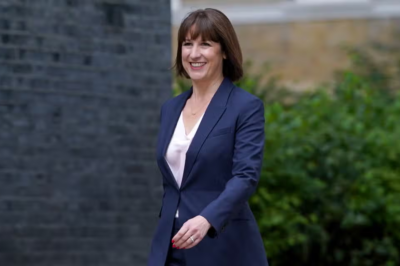
Labour Party leader Rachel Reeves made history on Friday by becoming the UK’s first female Chancellor of the Exchequer. Appointed by Sir Keir Starmer, the new Prime Minister, Reeves takes on the role equivalent to that of a finance minister.
Key Highlights:
- Rachel Reeves appointed as the UK’s first female Chancellor of the Exchequer.
- Reeves emphasizes economic growth as both a Labour Party and national mission.
- Her appointment follows Labour’s victory in the July 4 general election.
Background and Career:
- Early Life and Education:
- Born on February 13, 1979, in southwest London.
- Studied at New College, Oxford, and the London School of Economics (LSE).
- Professional Background:
- Former chess champion.
- Ex-economist at the Bank of England (BoE).
- Seconded to the British embassy in Washington and worked for the British bank Halifax/Bank of Scotland (HBOS).
- Political Career:
- Joined the Labour Party at the age of 16.
- Elected as Member of Parliament (MP) for Leeds West in 2010.
- Retained her seat in the 2015, 2017, and 2019 elections.
- Became the first MP for the newly created Leeds West and Pudsey constituency in the July 4 general election.
- Served as Labour’s finance policy chief in 2021 and as Shadow Chancellor of the Exchequer under Starmer.
Personal Reflections: Rachel Reeves expressed her gratitude and commitment on social media: “It is the honour of my life to have been appointed Chancellor of the Exchequer. Economic growth was the Labour Party’s mission. It is now a national mission. Let’s get to work.” She also thanked her constituents: “It is an honour and privilege to be returned as the MP for Leeds West and Pudsey. You have put your trust in me. And I will not let you down.”
Historical Significance: Reeves’ appointment marks a significant milestone in British politics, highlighting the increasing representation and influence of women in high-ranking governmental positions. Her diverse background in economics and public service positions her uniquely to tackle the economic challenges and opportunities facing the UK.









































Leave a Reply